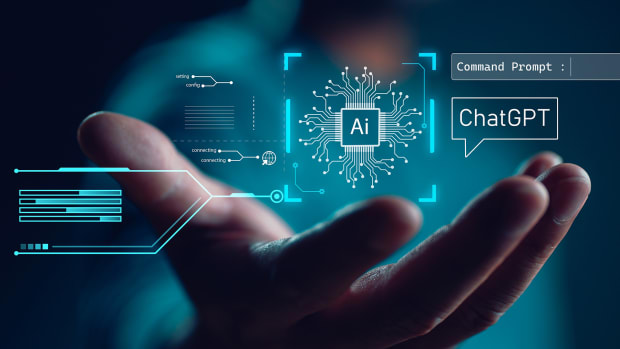
Whether you are a fan of Arnold Schwarzenegger’s iconic film series "The Terminator" or not, seeing the advances in artificial intelligence ‘AI’ in our society can be a bit unnerving. Developing AI feels dangerous, it feels unsafe, but it can also be very helpful.
The development of AI is being deemed a race between tech companies like Microsoft (MSFT), Alphabet's Google (GOOGL) and OpenAI, and those are only a few of many in the race. The launch of ChatGPT from OpenAI has also launched a lot of concerns.
ChatGPT is a form of AI that interacts within a conversation. The chatbot can use words in a conversation that sound and seem human, raising concerns of how to regulate its capabilities and its uses. The concerns are well founded, and not just from fans of movies like "The Terminator" on what can happen when AI becomes too powerful.
A class action lawsuit filed against Microsoft (MSFT) and OpenAI states, “Defendants’ disregard for privacy laws is matched only by their disregard for the potentially catastrophic risk to humanity," according to the lawsuit. Emblematic of both the ultimate risk -- and Defendants’ open disregard -- is this statement from Defendant OpenAI’s CEO Sam Altman: “AI will probably most likely lead to the end of the world, but in the meantime, there’ll be great companies.”

New Fear Unlocked with AI Advancement
Microsoft is one of the leading companies working toward the advancement of AI, and while Microsoft agrees that AI will need to have regulation. The speed of the AI advancement doesn’t correlate with how governments work to regulate agencies, especially one that is moving at the speed of AI.
Melinda French Gates, a philanthropist and notably the ex-wife of Microsoft’s co-founder Bill Gates, has joined the conversation about her fears regarding the development of AI, but with a different perspective. In a recent interview on CNN with Poppy Harlow, Belinda French Gates was upfront about her concerns with the development of AI and what kind of affect it could pose on women’s equality.
French Gates is a worldwide proponent of getting more women in government offices and in conversations anywhere it is primarily men making decisions.
“The system needs to take all people’s points of view, and see society, and quite frankly, see the world writ large as it is,” she said. This is why having women in the room and in decision-making positions when it comes to the deployment of AI “is just so vitally important,” said French Gates.
“I’m very nervous because we don’t have enough women, again, who are computer scientists, and who have expertise in artificial intelligence,” French Gates said, “and without that, we will bake bias into the system.”
“Too often we have decisions being made for women, not by women,” French Gates said. “As Ruth Bader Ginsburg said, I believe women should be every place that decisions are being made, and we’re just not there yet as a country.”
Quick Action Needed
While French Gates is advocating to get more women into the development of AI to keep from having to climb an uphill equality battle, AI could be developed with equality built in, if she has her way.
Getting more women in the conversation will help take more people’s point of view rather than just those who are developing the technologies. Not just more women, but people of different cultures all around. The more diverse the group who is working on the project the less bias it will be towards any one group of people.
The risks of AI aren’t just about the lack of diversity that could be inadvertently written into the programs, but also the lack of complete regulations around the development and use of AI around the world. "We need the AI Act as soon as possible," said Margrethe Vestage, executive vice president of the European Commission. "But AI technology evolves at extreme speed. So, we need voluntary agreement on universal rules for AI now."
The current AI Act being considered by the EU will address the different levels of risk associated with the applications as unacceptable risk, high-risk and anything else. This is the first regulatory attempt of AI by the EU. Any AI that is classified as an unacceptable risk, would be banned. Any AI that is high-risk would be regulated. Any AI that is not classified as unacceptable risk or high-risk would not be subject to regulations.







